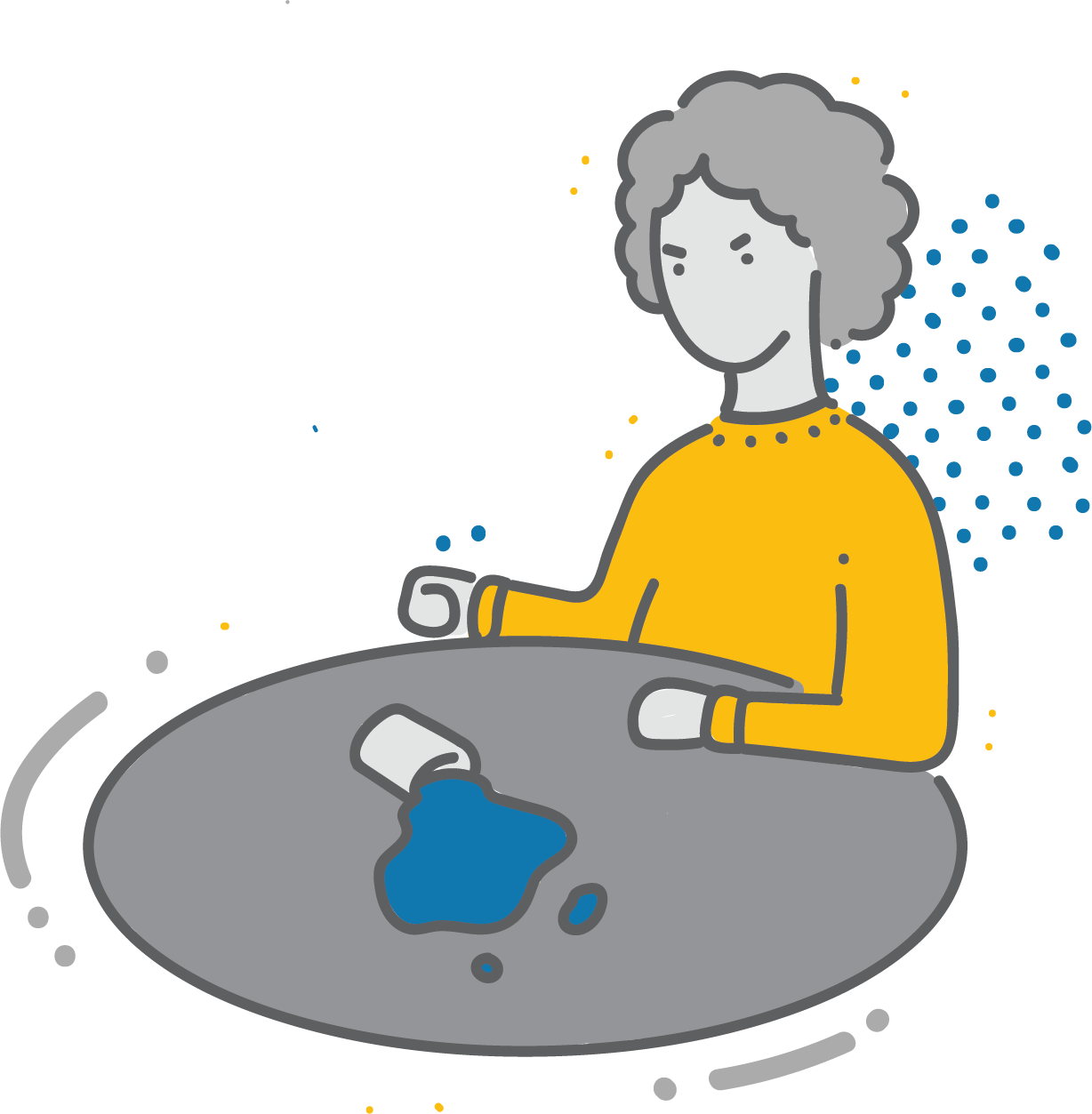Symptom Areas
Anger & Irritability
Updated Jul 31, 2019
Swipe right to go to the next slide
Some people describe feeling more irritable or angry after a concussion. They might say they have less patience, a “shorter fuse,” or trouble staying calm in challenging situations. Irritability and anger are common in many health conditions that involve pain, sleep changes, and/or stress.

Even “negative” emotions are important. Anger can motivate us to protect ourselves from danger, or stand up for ourselves when we are mistreated. However, too much anger can cause problems. It can hurt relationships, worsen symptoms, leave us feeling guilty, and get in the way of solving problems. Fortunately, there are strategies to help you manage anger.
In the section Becoming a Self-Manager, you learned many self-management tools and strategies can help reduce anger and irritability. For example, since pain and stress can worsen irritability, managing these factors is important. Also, good nutrition and pacing will leave you with more energy to deal with obstacles. Problem-solving and assertive communication are also great tools for handling frustrating situations.
One of the best ways to deal with the negative effects of anger is prevention. To do this, you need to identify Triggers & Early Warning Signs.
| - Feeling hot | - Sweating | - Tightness in muscles/chest |
| - Racing thoughts |
- Racing heart | - Clenching teeth or fists |
| - Tense muscles |
When you know your triggers, there are three main ways to manage them.
When you notice your early warning signs, you can use a stress management strategy, like calm breathing, to reduce the intensity of an emotion, or you can take a time out or distract yourself until the intensity passes.
Once the emotion is more manageable, you can practice problem-solving, assertiveness, or another strategy to achieve your goal in this situation. Alternatively, you can decide to move on. Choose your battles!
If managing anger and irritability is bothering you a lot, you can take action in a number of ways. Here are a few ideas:

Click the button above to toggle between light mode and dark mode. This toggle can also be found in the menu.
Hold
and tap
to zoom in.
Hold
and tap
to zoom out.
Hold
and tap
to zoom in.
Hold
and tap
to zoom out.
On most mobile devices, you can spread to zoom.
Increase your text size in your device settings.
Remember to take regular breaks while exploring MyGuide: Concussion.
Vancouver Coastal Health’s MyGuide Concussion Team would love to hear your feedback! It matters to us and helps to improve the experience for future users. Your responses will be kept anonymous and your privacy is a top priority. To complete a 15-20 minute online survey or request a telephone survey, please click the link below.